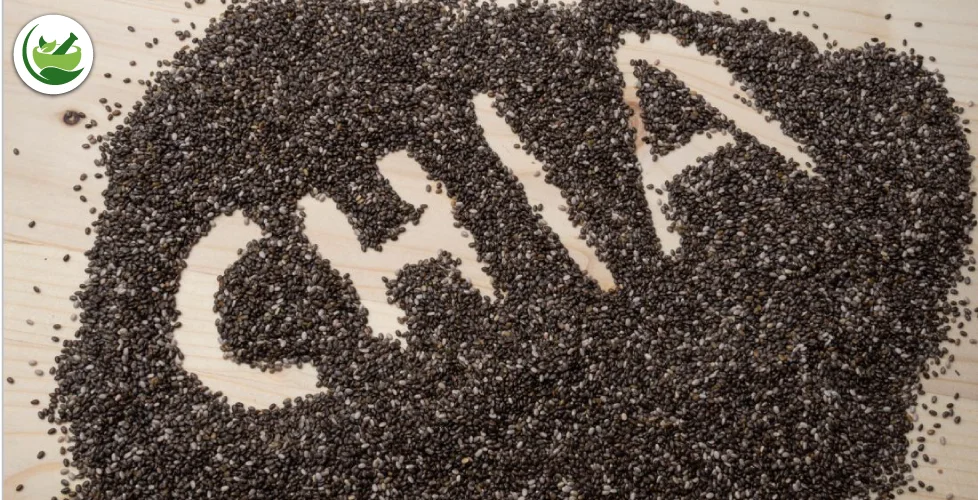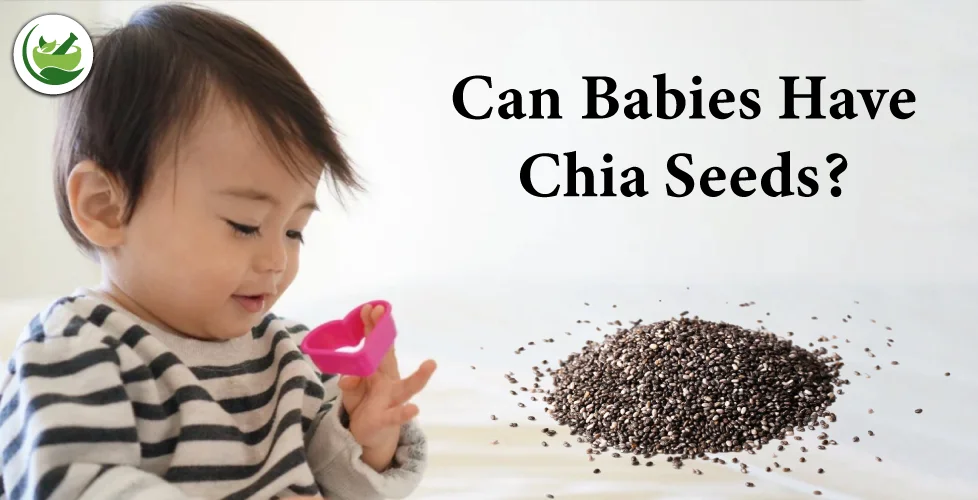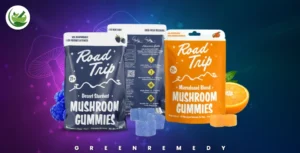Chia seeds, tiny black seeds from the plant Salvia hispanica, have surged in popularity as a health food. Known for their impressive nutritional profile, chia seeds are often added to smoothies, salads, and baked goods to boost their nutritional value. But as parents seek to provide the best nutrition for their children, a common question arises: Can babies have chia seeds? This blog will explore the potential health benefits of chia seeds for babies, how to safely introduce them, and important precautions to consider.
Related blog What do chia seeds taste like? Exploring Their Taste and Texture

Nutritional Profile of Chia Seeds
Chia seeds, though small in size, are packed with an impressive array of nutrients. They have been celebrated for centuries for their health benefits, and modern science confirms their nutritional prowess. These tiny seeds are a powerhouse of essential vitamins, minerals, and other beneficial compounds, making them a valuable addition to any diet.
Chia seeds are a powerhouse of nutrients. They are rich in:
- Vitamins and Minerals: Chia seeds contain significant amounts of calcium, magnesium, and phosphorus, which are essential for bone health.
- Omega-3 Fatty Acids: These seeds are an excellent source of alpha-linolenic acid (ALA), a type of omega-3 fatty acid that supports heart health and brain function.
- Fiber: With a high fiber content, chia seeds promote digestive health and help maintain regular bowel movements.
- Antioxidants: These compounds protect the body from oxidative stress and inflammation.
Health Benefits of Chia Seeds for Adults
Chia seeds are more than just a trendy superfood; they offer a multitude of health benefits that can significantly enhance adult well-being. From improving heart health to aiding digestion and supporting weight management, chia seeds are a versatile ingredient that can contribute to a healthier lifestyle in numerous ways.
Chia seeds offer numerous health benefits for adults, including:
- Heart Health: The omega-3 fatty acids in chia seeds help reduce inflammation and lower the risk of heart disease.
- Digestive Health: The high fiber content aids digestion and can help prevent constipation.
- Weight Management: Chia seeds expand in the stomach, promoting a feeling of fullness that can aid in weight loss efforts.
- Blood Sugar Regulation: The fiber in chia seeds helps regulate blood sugar levels, making them beneficial for individuals with diabetes.
Related blog Health Benefits of Black vs. White Chia Seeds

Can babies have chia seeds?
While chia seeds are highly nutritious, it is important to consider the specific nutritional needs and developmental stage of babies before introducing new foods.
- Age Recommendations: Most experts suggest waiting until a baby is around 6–8 months old before introducing chia seeds. This is when babies typically start eating solid foods.
- Nutritional Needs: Babies require a balanced diet rich in essential nutrients for their rapid growth and development. Chia seeds can complement this diet, but they should not replace other vital food sources.
Health Benefits of Chia Seeds for Babies
Introducing chia seeds to your baby’s diet can provide a host of health benefits. These tiny seeds are rich in essential nutrients that support growth and development. From aiding brain development with omega-3 fatty acids to promoting digestive health with their high fiber content, chia seeds can be a powerful addition to your baby’s nutritional regimen.
Chia seeds can offer several benefits for babies when introduced appropriately:
- Omega-3 Fatty Acids: Crucial for brain development, the ALA in chia seeds supports cognitive growth.
- Fiber helps maintain healthy digestion and can prevent constipation, a common issue in infants.
- Protein Content: Chia seeds provide a plant-based protein source that supports muscle and tissue growth.
Related blog Health Benefits Of Chia Seeds For Babies And Infants
How to Introduce Chia Seeds to Babies
Introducing chia seeds to your baby’s diet can be a nutritious and beneficial addition. However, it’s important to do so safely and appropriately. Understanding the best ways to prepare and serve chia seeds can help ensure your baby enjoys their health benefits without any risks. Here are some tips on how to incorporate chia seeds into your baby’s meals effectively.
Introducing chia seeds to a baby’s diet should be done with care.
- Appropriate Forms: Chia seeds should be soaked in water or milk to create a gel-like consistency, or they can be ground into a powder to avoid choking hazards.
- Mixing with Baby Foods: Add soaked chia seeds to purees, yogurt, or oatmeal. Ground chia seeds can be mixed into baby cereals.
- Portion Sizes and Frequency: Start with small amounts, such as a teaspoon, and gradually increase as tolerated. Chia seeds can be offered a few times a week.
Related blog Benefits of Chia Seeds During Pregnancy
Precautions and Risks
While chia seeds are highly nutritious and offer numerous health benefits, it’s important to be aware of potential precautions and risks associated with their consumption. Understanding these can help you incorporate chia seeds into your diet safely and effectively, ensuring you maximize their benefits while minimizing any adverse effects.
Despite their benefits, there are some precautions to keep in mind:
- Choking Hazards: Due to their small size and ability to swell, chia seeds must be prepared properly to avoid choking risks.
- Allergic Reactions: While rare, some babies may be allergic to chia seeds. Introduce them slowly and watch for any signs of an allergic reaction, such as rash, vomiting, or difficulty breathing.
- Digestive Issues: Some babies may experience digestive discomfort, such as bloating or gas, when first introduced to chia seeds. Monitor their reaction and adjust accordingly.
How to Prepare Chia Seeds for Babies
Every baby develops at their own pace, and the following suggestions for preparing chia seeds are general guidelines meant for a broad audience. Always consider your baby’s individual development and consult with a pediatrician if you have any concerns.
6 to 12 Months Old
Introducing chia seeds to your baby’s diet during the 6 to 12-month stage can be a nutritious and exciting experience. This period is crucial for developing healthy eating habits and exploring new textures and flavors. Here’s how you can safely incorporate chia seeds into your baby’s meals, ensuring they receive essential nutrients while enjoying delicious, soft foods.
At this stage, you can introduce chia seeds by:
- Stirring pre-soaked chia seeds into porridge or making chia seed pudding flavored with your favorite fruit. Allow your baby to self-feed by scooping with their hands.
- Encouraging utensil use: Pre-load a spoon with the chia mixture and place it next to the food for your baby to pick up, or hand it to them to grab.
- Avoid dry seeds: Do not serve spoonfuls of dry chia seeds, although it’s fine to sprinkle a small amount onto other foods.
12 to 18 Months Old
During the 12 to 18-month stage, toddlers are rapidly developing their motor skills and becoming more independent eaters. This period is crucial for introducing a variety of textures and flavors to their diet, including the continued use of chia seeds in their meals. Here’s how to effectively incorporate chia seeds into their diet while encouraging self-feeding habits.
Continue incorporating chia seeds into your child’s diet by:
- Serving soft, scoopable foods with pre-soaked chia seeds mixed in. Let your toddler self-feed using their hands or a utensil.
- Allowing flexibility with utensils: If your child isn’t interested in using a spoon, don’t worry. It’s normal for young children to switch between using their fingers and utensils. Consistent utensil use typically develops between 18 and 24 months.
- Avoiding dry seeds: Refrain from giving spoonfuls of dry chia seeds, but sprinkling a small amount onto foods is still acceptable.
18 to 24 Months Old
As your child enters the 18 to 24-month stage, their diet can become more varied and exciting. This is a great time to introduce new textures and flavors, helping to develop their palate and nutritional intake. Chia seeds can play a versatile role in their meals, from thickening drinks to enriching cereals, contributing to their overall health and development.
Expand the ways you use chia seeds by:
- Adding them to drinks: Mix chia seeds into fruit smoothies or make a simple agua fresca with mashed fruit, freshly squeezed lime juice, water, and chia seeds.
- Continuing with warm cereals: Chia seeds can still be served in oatmeal, porridge, or other warm cereals.
- Avoiding dry seeds: Continue to avoid spoonfuls of dry chia seeds, though a small sprinkle on other foods remains fine.
By following these guidelines, you can safely incorporate chia seeds into your baby’s diet, ensuring they receive the nutritional benefits while minimizing any risks.
Related blog Nutritional Benefits Of Chia Seeds For Toddlers: What Parents Need To Know
Recipe Ideas for Cooking with Chia Seeds
Chia seeds are incredibly versatile due to their mild taste and high nutritional value. Here are some creative ways to incorporate chia seeds into various dishes:
For Babies
Porridges and Yogurts: Stir chia seeds into porridge or yogurt for a nutritious boost. You can also mix them with mashed fruits or vegetables for a soft, scoopable meal.
For Older Children
Thickening Drinks: Use chia seeds to thicken drinks like smoothies or agua fresca. These refreshing beverages, popular in Latin America, can be customized with various fruits and flavors.
Chia Pudding: Make a simple coconut chia pudding and add your choice of fruits and spices for a delicious and healthy treat.
For General Use
Granola and Sweets: Chia seeds work well in granola, adding extra crunch and nutrients.
Savory Dishes: Incorporate chia seeds into savory recipes like meatballs and patties for added texture and nutrition.
Egg Substitute in Baking: Hydrated chia seeds can replace eggs in baked goods. Use them to bind ingredients in recipes for pancakes, quick breads, and more.
By experimenting with these ideas, you can easily add the nutritional benefits of chia seeds to a variety of meals, making them a staple in your kitchen.
Conclusion
Chia seeds can be a nutritious addition to a baby’s diet when introduced appropriately. They offer numerous health benefits, including essential fatty acids, fiber, and protein, which support healthy growth and development. However, it is crucial to introduce them safely and consult with a pediatrician to ensure they are suitable for your baby. By following the recommended guidelines and precautions, you can safely incorporate chia seeds into your baby’s meals and contribute to their overall well-being.






